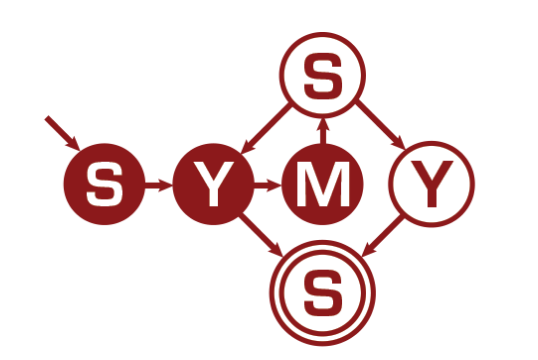Jon is a Senior majoring in Symbolic Systems with a concentration in Natural Language Processing. He is currently researching computational models of human language in Chris Manning's Stanford NLP group. Here, he shares about how he got involved in research, and what he has learned about focusing on the big picture in his education.
What is your concentration?
I'm part of the Natural Language concentration. This means I've taken a mix of classes in computer science and linguistics. In practice, though, most of my work has been in artificial intelligence. It blends topics in computer science (probabilistic modeling, machine learning) and linguistics (meaning representation, syntax-driven models, etc.).
Tell us about a research project you are working on.
My research is all about computational models of human language learning and language use. My current research project attempts to explain how language learners make successful rapid inferences about the meaning of words they haven't ever heard before, even when in situations where that meaning is highly ambiguous. This project is part of a larger attempt to explore new problems in modeling natural language dialogue. I'm thinking about new tasks that we could design to bring about interesting and robust conversational agents that talk like us (and talk with us!).
How did you get involved in research?
I started working with my advisor, Chris Manning, after applying to CURIS, the CS department's research program. They didn't mind that I was a SymSys major! After CURIS I was allowed to stick around, and I've been having a blast working with Chris' group (the NLP Group) ever since! My research is all about computational models of human language learning and language use.
Why did you decide to major in SymSys over related majors such as CS, linguistics, etc.?
It was a pretty simple choice. The list of classes required for the SymSys major was a near perfect match with the list of classes I would want to take anyway during my time at Stanford.
What is one piece of advice you'd like to offer to younger students?
Always keep track of your interests, and take them seriously. You should always be thinking about the "big questions" that you really care about answering. For example: "How can neuroscience learn from developments in artificial intelligence?" "Is there a line we can draw between quantum physics and consciousness?" "Are there fundamental and objective moral principles underlying human behavior?" When you are choosing classes, hunting for internships, or looking for research opportunities on campus, always ask, "What could this class / opportunity do to help answer the questions I care about?" It's otherwise way too easy to get lost in the weeds of your particular field and miss the big picture. Keep imagining your education as active. It's not "what will this class teach me" — it's "what can I learn from this class."
If you could go back in time and be a Stanford student again, what would you have done differently and why?" (i.e. taking a different class, choosing a different advisor)
I would have taken philosophy classes starting in my freshman year. I left lots of the major SymSys-relevant philosophy classes for my senior year, and am only now realizing what I've missed. Philosophy classes (beginning with PHIL 80) are revealing to me the enormous amount of assumptions and ideas that lie behind artificial intelligence and cognitive science. Those classes have given me the tools to recognize these higher-level problems and, more importantly, to do really serious conceptual thinking about my own research that wasn't even conceivable to me before.
Jon is one of many profiles featuring selected alumni, undergraduates and graduates who are involved in the Symbolic Systems community.




